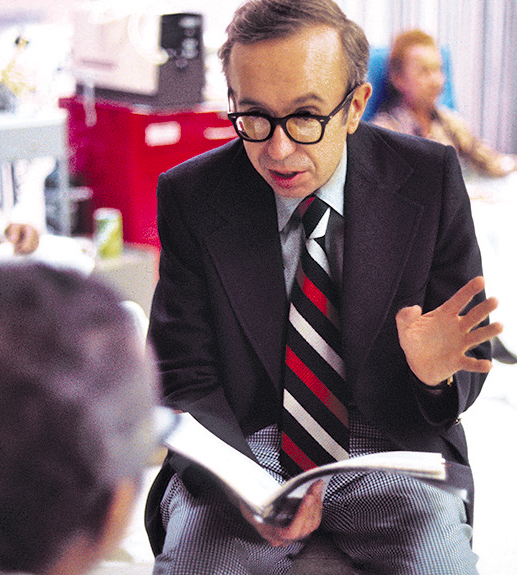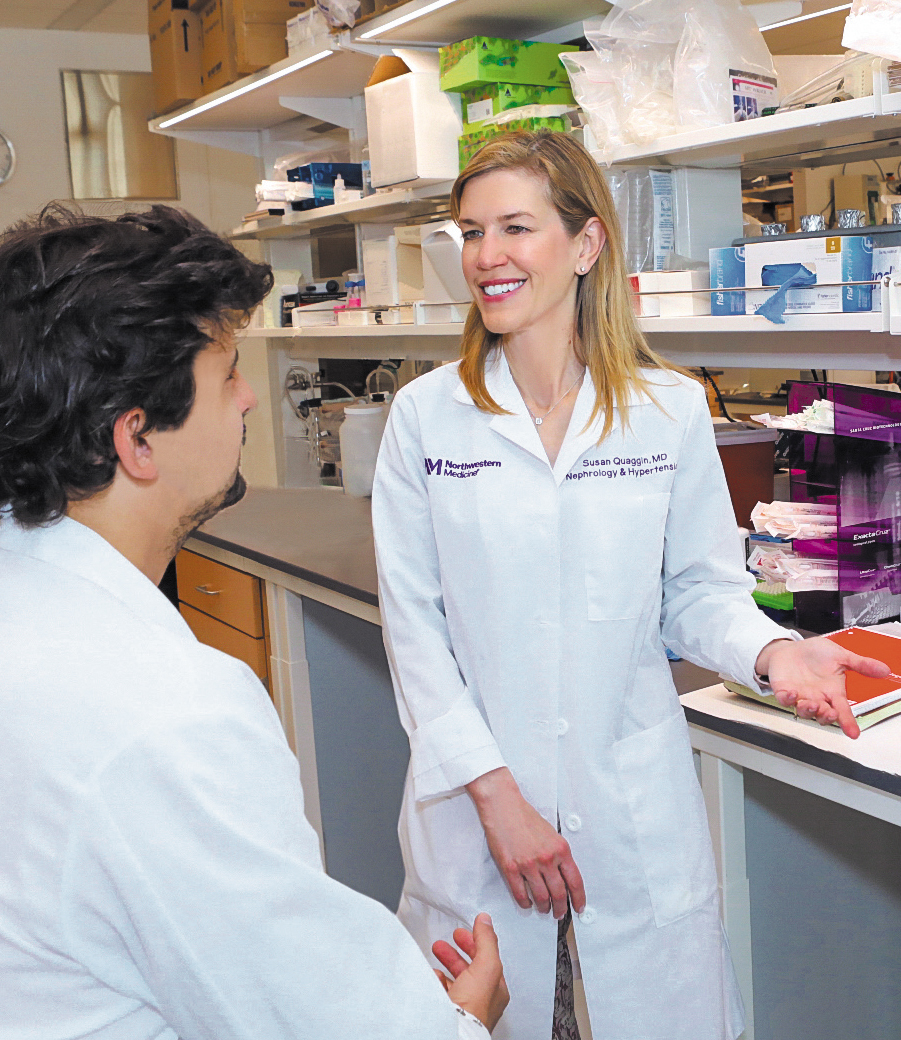Impact Story: Division of Nephrology

Dr. Frank Krumlovsky served for over 40 years as a highly respected nephrologist at Northwestern Memorial Hospital and faculty member in the Division of Nephrology within the Department of Medicine at Northwestern University Feinberg School of Medicine. He was also a dedicated world traveler, spending time in far-flung destinations like Antarctica and Siberia. A stalwart supporter of the medical school during his life, Dr. Krumlovsky’s planned gifts will now endow an annual lectureship, a distinguished clinician faculty award, and a professorship in nephrology. His legacy will catalyze future discoveries in kidney medicine and innovation in clinical care. He passed away in 2019.
Q & A with Dr. Susan Quaggin
A silent killer, kidney disease affects 37 million Americans, with ≈700,000 of them needing dialysis or a kidney transplant to survive. Early in her medical training, the puzzling case of a seemingly healthy young man’s failing kidneys charted a course for Susan Quaggin, MD, director of the Feinberg Cardiovascular and Renal Research Institute, chief of Nephrology and Hypertension in the Department of Medicine, and the Charles H. Mayo, MD, Professor. Determined to better understand kidney disease, this renowned nephrology expert has spent her career advancing clinical care through groundbreaking kidney research. In 2013, Dr. Quaggin joined Northwestern, where she is creating a super-charged hub for kidney research.
How is Northwestern pushing the envelope to develop new therapies for patients with kidney disease?
We have many ambitious research initiatives in play, including an exciting project to grow kidneys in a dish. Right now, our talented scientists are creating blood vessels within these miniature organs using CRISPR technology for gene editing. By the end of year, we hope to see positive results. Currently, patients in Illinois must wait an average of seven years for a new kidney. This work could revolutionize kidney transplantation and improve patient care.
What will continue to put Northwestern on the map for kidney research?
Recruiting a critical mass of physician-scientists and PhD scientists from all disciplines and providing resources to catalyze their research will continue our trajectory. In 2018, we had a big win: We received a $5.8 million grant from the National Institute of Diabetes and Digestive and Kidney Diseases (NIDDK) to expand our ability to identify, test, and translate discoveries into novel therapeutics. Northwestern is one of only eight NIDDK-funded George M. O’Brien kidney centers in the country and is the only center focused on boosting the therapeutic pipeline for kidney disease.

Where will the field of nephrology be in the next 10 to 20 years?
The development of bioengineered kidneys, wearable kidneys, new therapies targeted to specific kidney diseases like diabetic kidney disease, and miniaturized dialysis machines are all innovations that could become real possibilities. They may sound like science fiction, but these treatments are within reach thanks to fundamental discovery research at Northwestern and in labs around the world.
How is Dr. Krumlovsky’s gift impacting the division now and for years to come?
Dr. Krumlovsky was thoroughly committed to ensuring the success of our program, where he had dedicated so many years of his life. Before he passed away, we discussed the professorship he was endowing. He wanted it to support not only a leading international figure in kidney medicine but also someone who was creative and curious, like the free spirit that he was. With his support, we are well on our way to recruiting the perfect candidate who will have the resources to make many contributions to the division.
This story was published in the Fall 2019 edition of the Nathan Smith Davis Impact Stories, a publication that highlights leadership donors to various areas of Northwestern University Feinberg School of Medicine. Read the whole issue here.